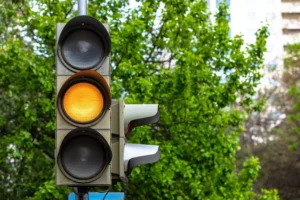During the late 1970s I spent two extended periods living below the “poverty line.”
The first experience came as I entered the first grade. My father was a chronically unhappy man who was skillful and ambitious, yet prone to wanderlust. Every few months we would move to a new city so that he could try his hand at a new occupation — a truck driver in Arkansas, a cop in West Texas, a bouncer at a honky-tonk near Louisiana.
We were always on the move, always a few weeks away from the next paycheck. At the lowest point we had nothing to eat but half a loaf of Wonder bread, a 5-gallon bucket of unshelled peanuts and tap water. That lasted for a two weeks period in August that stretched across my seventh birthday.
Eventually my father settled down, found steady work, and we inched our way slowly toward the lower rungs of the working-class. This period of financial tranquility lasted until I was 11 when my father walked out on my mother, my younger brother and me. Brokenhearted and dead broke, we packed the car and moved again, my mother having acquired the nomadic tendency to run away from adversity. (By the time I graduated from high school, I had changed schools 19 times.)
Single parenthood tipped the scales and we slipped, once again, beneath the poverty threshold. We survived with the aid of food stamps and government housing until my sophomore year when my mother remarried and our lives returned to a level of economic normalcy.
I’m always hesitant to share this story because we in America tend to have a knee-jerk sympathy for the “down and out.” There are, however, many times, like in my family’s case, when pity is completely unwarranted. A lifetime of foolish decisions by my parents, rather than a dismal economy or lack of opportunity, led to our being poor. We reaped what they had sowed.
But while being poor can be difficult, it isn’t the tragedy that many might be inclined to believe. From an early age I knew that while many people had more than I did, others had it much, much worse.
That lesson was seared into my conscience while sitting in a pew watching Baptist missionaries present a slideshow detailing their latest mission trip. The images of true poverty gave our tiny congregation a glimpse into the everyday life in Ethiopia, a time of famine when a bucket of unshelled peanuts would be considered a feast. I was struck by the realization that as little as we had, these people had less. I was white-trash Texas poor; these people were Africa poor.
In retrospect, I realize that many would have looked on me as I looked on these African children: creatures to be pitied from a distance. Feeling no meaningful connection with them, I shuffled them off into the category of The Other. Having nothing in common with them, I thought, I concluded that these foreigners — who didn’t even have a mobile home and a broken down Buick to call their own — lived a foreign life and practiced a foreign faith.
But the truth was that I was fundamentally no different from these impoverished African children; the Christian faith that we shared was the same Christian faith. And I had something to learn from my fellow brothers in Christ. As the Dutch prime minister and theologian Abraham Kuyper explained in The Problem of Poverty:
There cannot be two different faiths — one for you and one for the poor. The question on which the whole social problem really pivots is whether you recognize in the less fortunate, even in the poorest, not merely a creature, a person in wretched circumstances, but one of your own flesh and blood: for the sake of Christ, your brother. It is exactly this noble sentiment that, sad to say, has been weakened and dulled in such a provoking manner by the materialism of this century.
Kuyper wrote these words in 1891 for the material obsessed middle-class of the Netherlands. Yet in our own country, as I know first-hand, even the poor are dulled by materialism. Many of our poor have more possessions than the rich young ruler instructed by Jesus to sell all he had in order to find salvation. How many of those in poverty in America would give up all they had? Even my family — white-trash Texas poor as we were — would have been hesitant to part with our bounty.
The problem of my family’s poverty was not just that it made it difficult for us to fulfill our material needs, but rather that it blinded us to what we really and ultimately needed. Indeed, what the truly destitute — those without food and shelter — need most isn’t an impersonal handout or a redistribution of wealth. What they need are Christians like me to heed Jesus’ command to love in a practical and relational way. As Kuyper points out:
For deeds of love are indispensable. Obviously, the poor man cannot wait until the restoration of our social structure has been completed. Almost certainly he will not live long enough to see that happy day. Nevertheless, he still has to live, he must feed his hungry mouth, and the mouths of his hungry family. Therefore, vigorous help is necessary. However highly I am inclined to praise your willingness to make sacrifices — and this is possible through God’s grace to many of you — nevertheless, the holy art of “giving for Jesus’ sake” ought to be much more strongly developed among us Christians. Never forget that all state relief for the poor is a blot on the honor of your savior.
The fact that the government has to have a “safety net” to catch those who would slip between the cracks of our economic system is evidence that I have failed to do God’s work. The government cannot take the place of Christian charity. A loving embrace isn’t given with food stamps. The care of a community isn’t provided with government housing. The face of our Creator can’t be seen on a welfare voucher. What the poor need is not another government program but for Christians like me to honor our Savior with our lives and resources.
So why do I still find it so difficult to give, of my money, of my time, of my self? Why are the “deeds of love” that Kuyper called indispensable so easy for me to withhold?
I can’t blame it on “poverty.” Today, I’m comfortably ensconced in the middle-class, with free time and disposable income that I waste with embarrassing regularity. Yet even when I was poor I was wealthier than 95 percent of the rest of the planet. I still had a duty to provide aid to those who were even less fortunate; Jesus didn’t excuse me from my obligations because of my seeming lack of funds.
In Christ day, the Jews were instructed to give to the Temple and to the poor as part of their service to God. Jesus praised the poor widow who gave two mites as one who had “put more into the treasury than all the others.” The others had given out of their wealth, but she had given out of her poverty.
Jesus never said that the widow shouldn’t have given because she had little to spare. Instead, he praised her obedience. If the widow and the poor can give, then how much more can those of us in temporary financial straits — the starving artist, the ramen-eating college student, the struggling young parents — give of our abundance?
Some day I will stand before my Creator and He’ll ask why I didn’t feed my brother when he was hungry or clothe my sister when she was cold. I suspect I won’t be able to get away with, “I couldn’t give, Lord; I lived in poverty.”
Unlike the poor widow, I’m rich in possessions and could give out of my wealth. But she gave out of abundance — an obedient heart and love for her neighbor — for which I am truly impoverished.
Copyright 2008 Joe Carter. All rights reserved.










